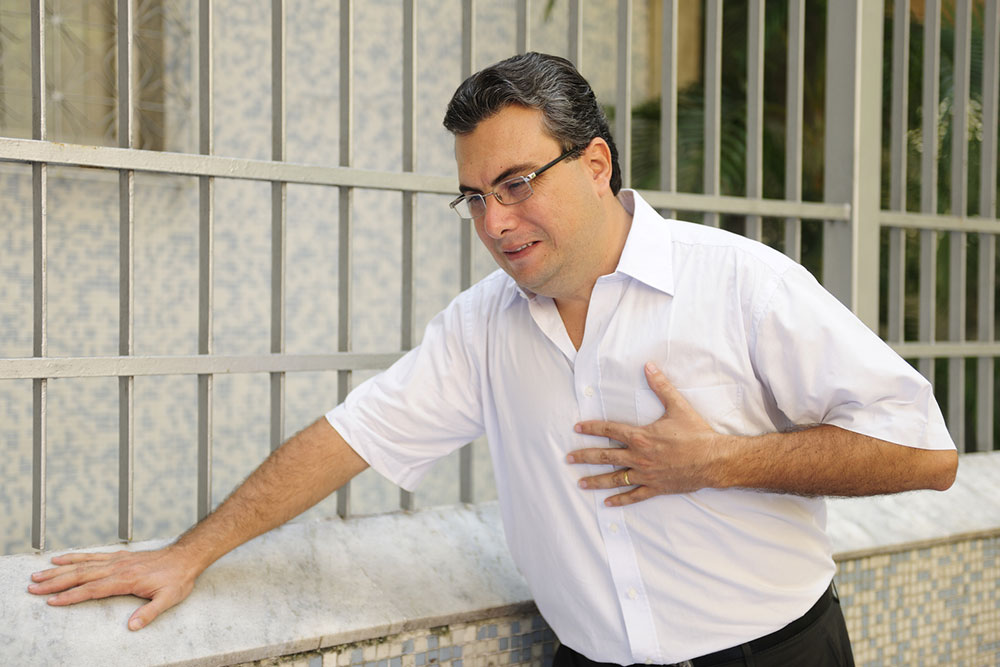10 warning signs of a heart attack

Heart attacks, medically known as myocardial infarctions, are brought on by blockages in the blood flow. Here, the heart muscle does not receive enough oxygen to function, which can cause several issues in the body. However, recognizing the early warning signs of a heart attack can help prevent further complications. In addition to sudden chest pain, several symptoms may develop before or during the attack. Here are a few early signs to consider:
Chest pain or discomfort
The most widely recognized symptom of a heart attack is chest pain or discomfort. The pain here is often described as a crushing or squeezing sensation in the center or left side of the chest. However, not all kinds of chest pain indicate a heart attack; the distinguishing feature of cardiac chest pain is its persistence and intensity. It typically lasts for more than a few minutes and may radiate to the arms, neck, jaw, or back.
Shortness of breath
Another common early warning sign of a heart attack is shortness of breath. One may suddenly find it difficult to catch their breath or experience a feeling of suffocation. This symptom often occurs in conjunction with other signs, such as chest pain. So, if one experiences unexplained breathlessness, especially accompanied by other heart attack symptoms, one must seek medical attention promptly.
Fatigue
Excessive fatigue, especially when it is sudden and overwhelming, can be a sign of an impending heart attack. If one finds themselves feeling unusually tired, weak, or lethargic, it could be their body’s way of signaling a problem with the heart. Further, fatigue may develop during routine activities, such as climbing stairs, walking, or getting out of bed. So, one should pay attention to the body’s cues and consult a healthcare professional if this symptom persists.
Nausea and vomiting
Nausea and vomiting may also be early signs of a heart attack, especially in women. These symptoms may be mistaken for gastrointestinal issues, but when they are accompanied by other signs like breathlessness, chest pain, or dizziness, they should be examined by a doctor. This means that if one experiences persistent nausea or vomiting, especially in combination with other concerning symptoms, they should avoid ignoring these concerns.
Cold sweats
Profuse sweating or cold sweats can be a sign of an impending heart attack. This symptom may occur suddenly and is not brought on by exertion or hot weather. Cold sweats can be particularly alarming when they accompany other symptoms like chest pain or shortness of breath. So, if one breaks out in a cold sweat without any apparent cause, they should consult a doctor to determine the trigger.
Dizziness or lightheadedness
Feeling dizzy or lightheaded can be an early warning sign of a heart attack. One may experience a sense of unsteadiness or a feeling that they may faint or fall. This dizziness can result from reduced blood flow to the brain, which can be a complication of a heart attack. So, those experiencing dizziness or lightheadedness, especially in combination with other concerning symptoms, must seek medical care as soon as possible.
Upper body pain or discomfort
While chest pain is the most well-known symptom here, discomfort or pain can also develop in other parts of the upper body. This may include pain in the arms, shoulders, neck, jaw, or upper back. The pain may be mild or intense and may come and go. While the discomfort here is often dismissed as muscle pain or tension, it should be examined by a doctor to rule out a heart attack. It is important to note that women may experience atypical symptoms like brief or sharp aches in the neck, arm, or back.
Unexplained indigestion or heartburn
Some may experience indigestion or heartburn as an early warning sign of a heart attack. These symptoms can be misleading, as they are commonly associated with digestive issues. However, if one has no history of indigestion or heartburn and suddenly experiences them, especially along with symptoms like chest pain or breathlessness, it is important to consider the possibility of a heart attack.
Pressure in the jaw or throat
Pain or pressure in the jaw or throat can be an unexpected sign of a heart attack. Such pain may be mistaken for a dental issue or a sore throat. However, when it develops in conjunction with other heart attack symptoms, it should not be ignored. Such jaw pain can often be felt in the lower jaw, and it may be constant or intermittent.
Uneasiness
One may experience an unexplained feeling of uneasiness or a sense of impending doom before or during a heart attack. This feeling of extreme unease can be overwhelming and may be accompanied by a sense that something is wrong. While uneasiness can manifest in various ways, it is important to look at it as a potential early warning sign when it develops unexpectedly and is associated with other heart attack symptoms.
It is important to note that the severity of each symptom can vary from person to person, and they may begin appearing days or weeks before an attack. On recognizing these symptoms, prompt medical intervention can help improve the chances of survival and also minimize heart damage.
Further, while chest pain is the most well-known symptom here, it is not the only indicator of a heart attack. The above-mentioned issues may seem harmless on their own, but one must not ignore them if they persist or develop simultaneously, as they could be warning signs of attacks. Moreover, it is important to remember that early detection and prompt treatment can help in managing the symptoms and preventing complications. So, it is important to pay attention to sudden changes and take unusual or concerning symptoms seriously.



